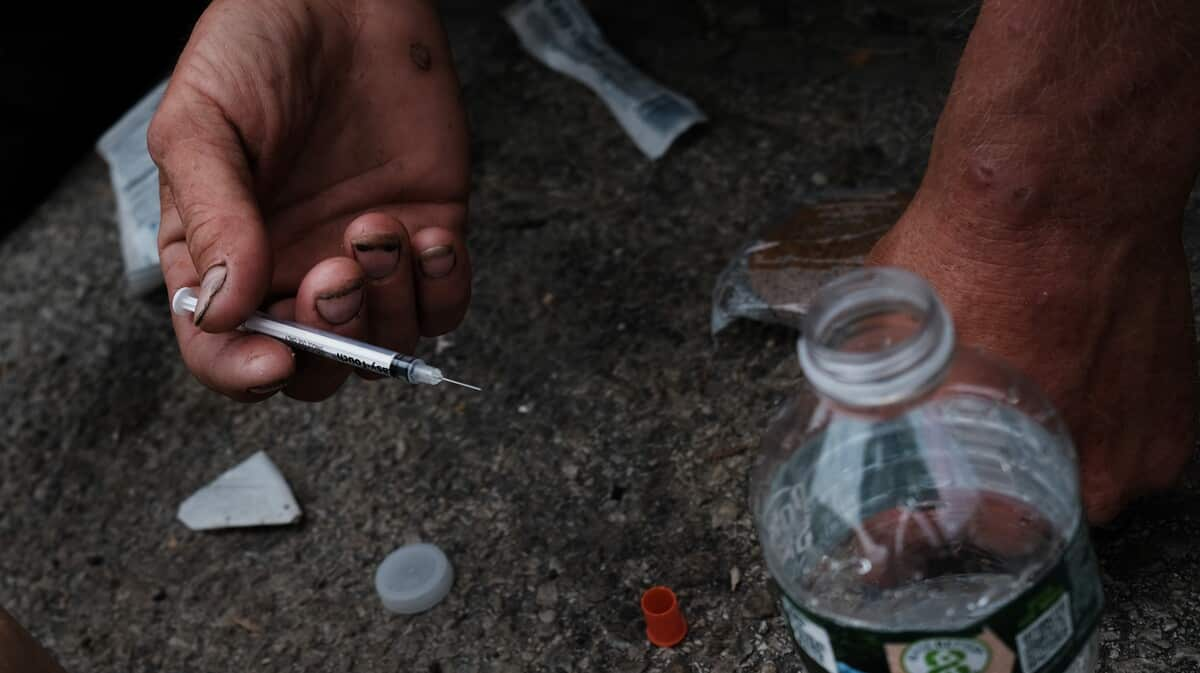
Drug users who come into contact with the potent veterinary tranquilizer xylazine in many major American cities are made to appear to be walking corpses. It is already present in Canada and, according to a specialist, could soon contaminate drugs being used in Montreal.
• Read also: When crystal meth rhymes with sex: 6 former followers of "chemsex" confide Nicknamed "tranq" or "zombie drug," xylazine causes sores and eventually the death of skin tissue when combined with opioids like fentanyl or heroin. These are just a few of the worst effects of alcohol. symptoms that, if left untreated, can result in amputation.
The largest city in the United States, Philadelphia. S.
According to data from Substance Use Philadelphia, 90 percent of the opioid samples examined in the state of Pennsylvania in 2021 contained the medication typically used on horses. According to The New York Times, 25 percent of the samples tested in New York City in 2021 contained xylazine, a drug that has already been found in 36 states south of the border.
The situation is not limited to the United States: in July of last year, the Canadian Community Epidemiology Network on Substance Abuse (CCENDU) issued a warning about the discovery of xylazine in a small number of opioid sample tests conducted in British Columbia, Manitoba, Ontario, Quebec, and Nova Scotia. Because of the existence of an opioid supply corridor that links the major cities on the country's east coast, the issue has long been present in British Columbia, and more recently, it has become more and more noticeable in Toronto, according to Jean-François Mary, director of the Cactus Montreal organization.
Soon in Montreal? No sample tested recently at Cactus Montreal, which provides a substance analysis service, contained xylazine. However, the speaker believes it will only be a matter of time before the effects of animal tranquilizers are more clearly felt in the city.
"Generally speaking, when you witness events like this taking place elsewhere in the nation, it indicates that it will eventually occur here. There will soon be larger xylazine samples circulating in Montreal, it is a given.
It is crystal clear. The fact that xylazine will soon be present in Montreal territory is concerning because this drug can lead to numerous cardiovascular issues in addition to serious respiratory deficiencies.
Due to this, the province's ongoing overdose crisis could be made worse by its inclusion in a mixture of already dangerous substances. jean-françois mary expresses concern that "we don't know if we will be able to detect it before it causes overdoses.".
The issue is that, in contrast to opioids, naloxone cannot reverse an overdose from xylazine. According to the director of Cactus Montreal, this calls for a paramedic intervention to be made very quickly in order to save the person's life and get them to the hospital.
• See also: Consumers are constantly at risk from drug-related product smuggling, which uses dangerous products. Concerning: Teens are vaping wax, a potent cannabis concentrate. According to Jean-François Mary, prevention or intervention techniques are constantly falling behind cutting products, which are constantly changing based on the substances available and their costs.
"In general, we observe that the number of overdose deaths in the nation is rising steadily. We believed that we had peaked in 2018, but in reality, we hadn't at all because we still have a serious supply problem, he emphasizes.
In this situation, according to Jean-François Mary, it is imperative to reevaluate our drug policies in order to prevent criminal organizations from controlling the country's supply. "It is undeniable that the public's health is at risk when cartels and other gangs are allowed to control the supply of a product meant for human consumption.
Over a century of control methods have been tried, and the results are now becoming apparent. Collectively, perhaps we should consider something else," he says in his conclusion.
• Continue reading: What you should know about crystal meth, a potent drug that is now more prevalent than ever in Montreal.
Because of the existence of an opioid supply corridor that links the major cities on the country's east coast, the issue has long been present in British Columbia, and more recently, it has become more and more noticeable in Toronto, according to Jean-François Mary, director of the Cactus Montreal organization.


No comments:
Post a Comment